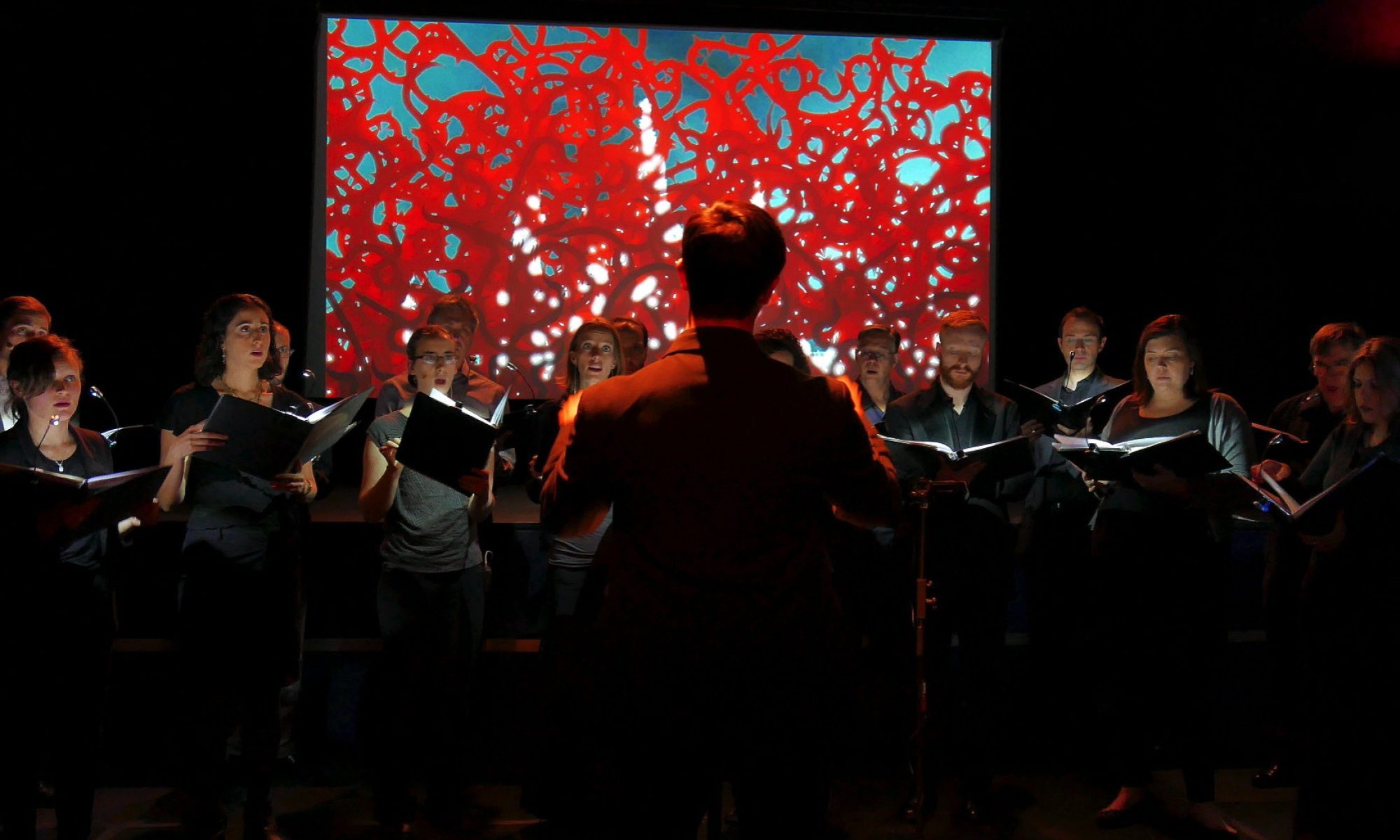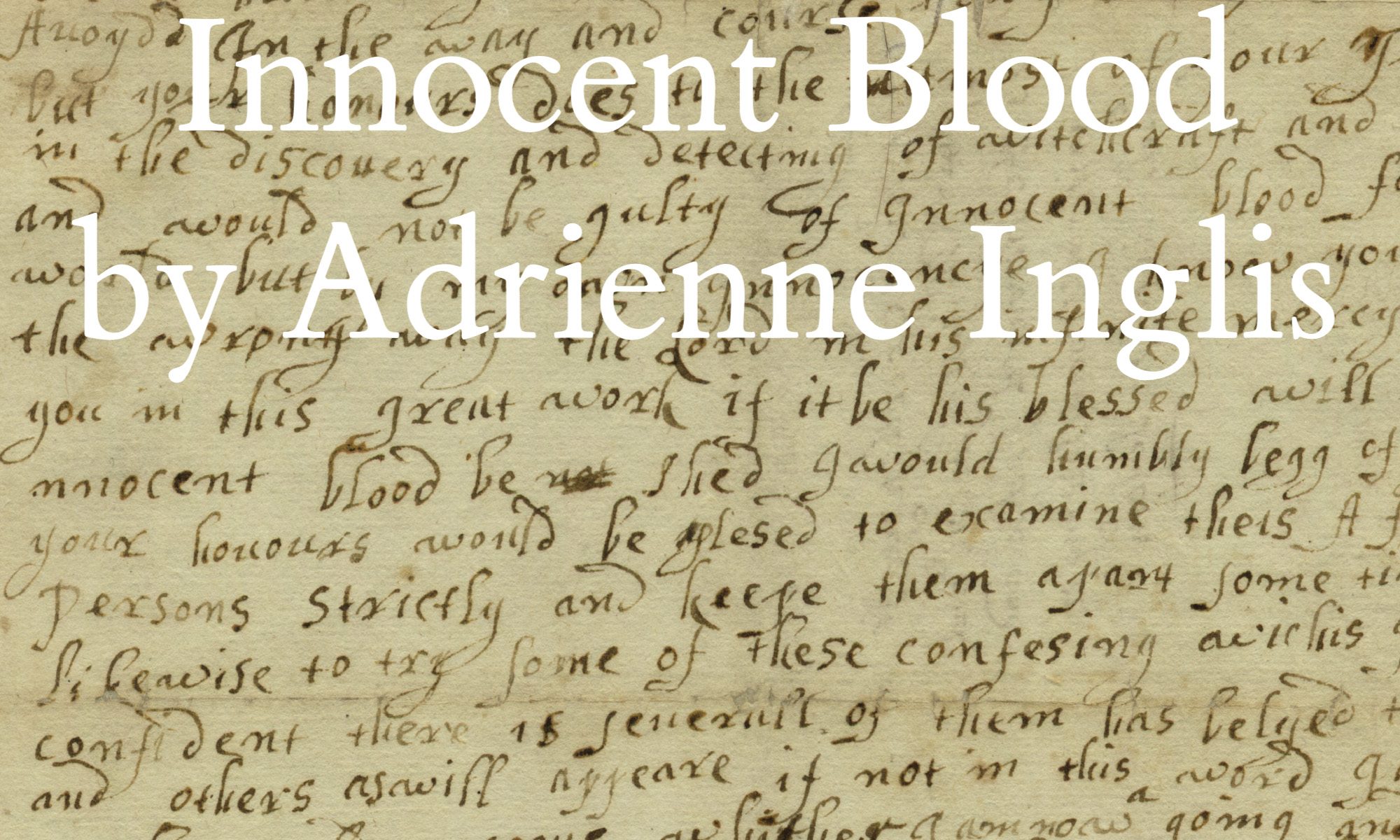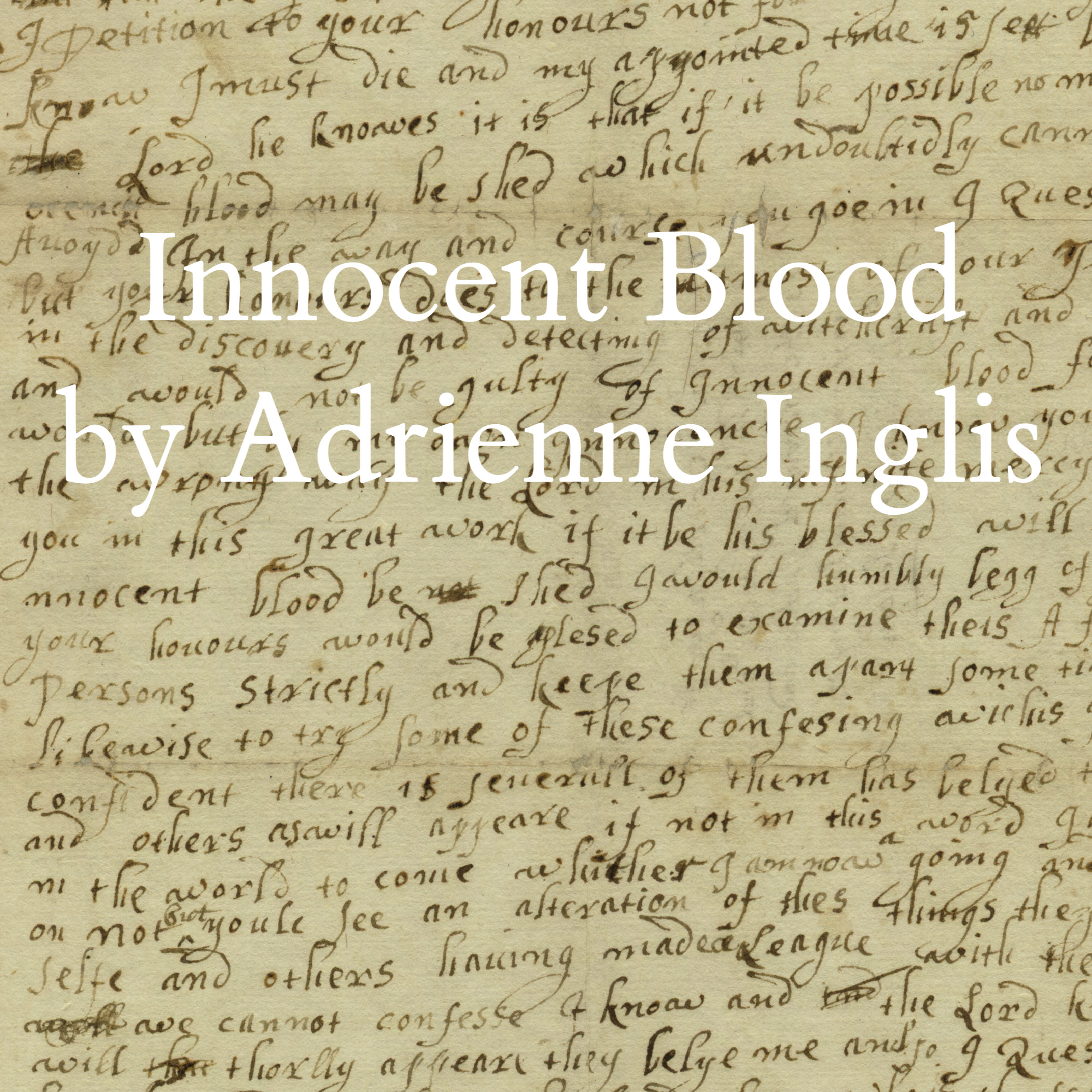Mary Esty of Topsfield, Massachusetts, was the composer’s eighth-great-grandmother, a 58-year-old married mother of seven. She was falsely accused of witchcraft and hanged September 22, 1692 in Salem, Massachusetts.
Innocent Blood, a choral work with mezzo soprano soloist, mixed chorus, flute/bass flute, and organ tells Mary's tragic story. Catherine Colvin's beautifully crafted metered poem A Contemplation of God: Massachusetts Bay 1692 gives voice to the political upheaval, social unrest, and religious angst that characterized the colony in 1692.
The collapse of the original colonial charter in 1684, the imposition of the unpopular Dominion of New England charter, the overthrow of King James II by William of Orange in 1688, and the imposition in 1691 of yet another charter that restricted local rule and religious laws, all contributed to the collective dread. An influx of refugees from the King William's War to the north, plus ongoing conflicts with Native Americans, rival families, failed crops, and wolves, created great fear and anxiety in Salem Village.
The distress suffered led to increased fear of Satan's hand in their community. The setting of transcribed court records recreates dramatic April 22, 1692 trial that sends her to jail. Mary Esty's eloquent petition to Governor William Phips is a duet with the mezzo soloist and bass flute. The work closes with grief and regret shown by the community, a poignant farewell and prayer as Mary Esty says goodbye to her family, and a chilling conclusion as the bailiff leads her offstage to the gallows in silence.
The Bay Psalm Book published in 1698 contains the hymns commonly sung by Puritans in their devotionals at home. The following tunes weave through the movements: Windsor, Cambridge, and St. David's.
https://soundcloud.com/adrienne-inglis/innocent-blood-by-adrienne-inglis-ascap-1

